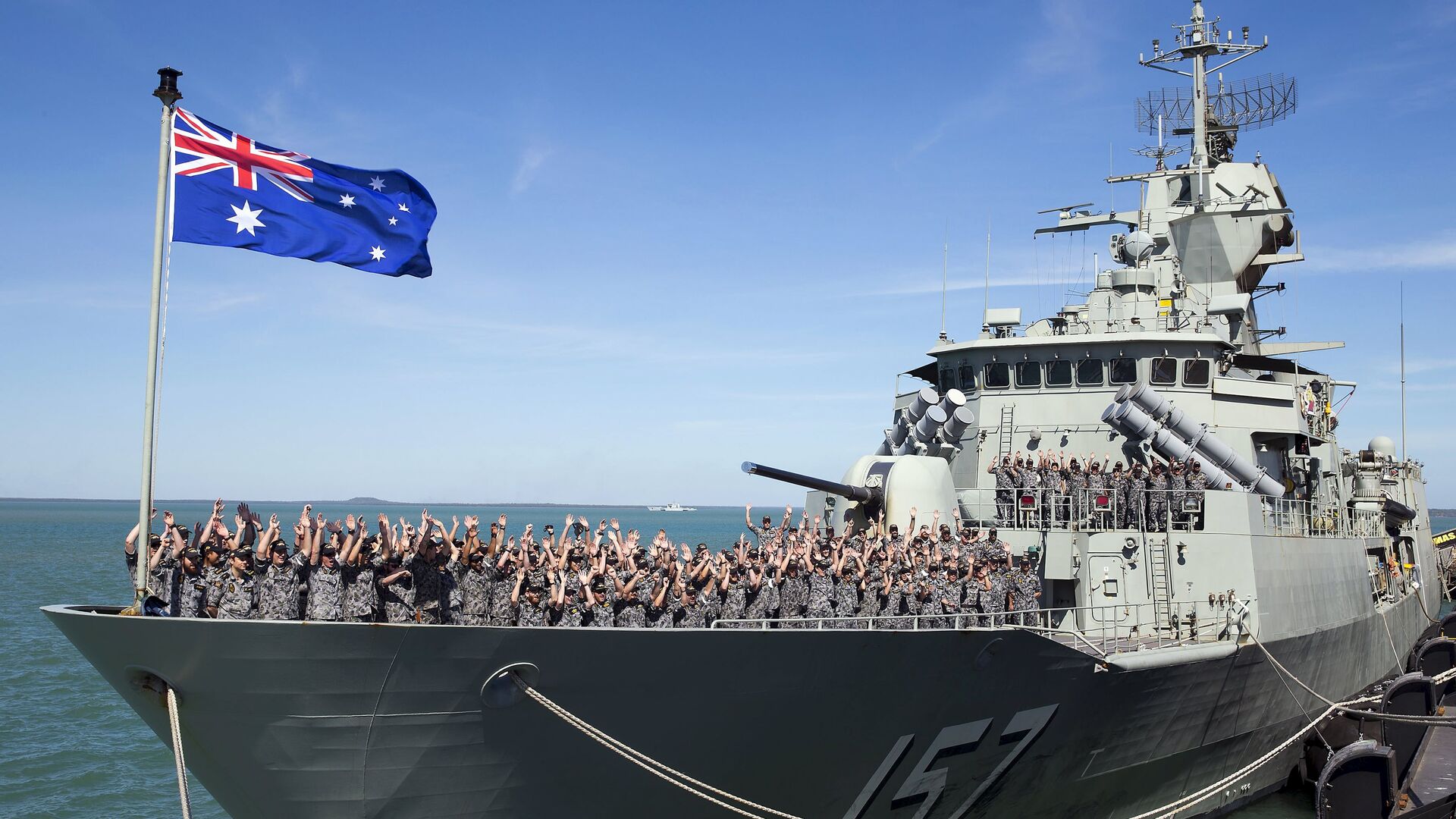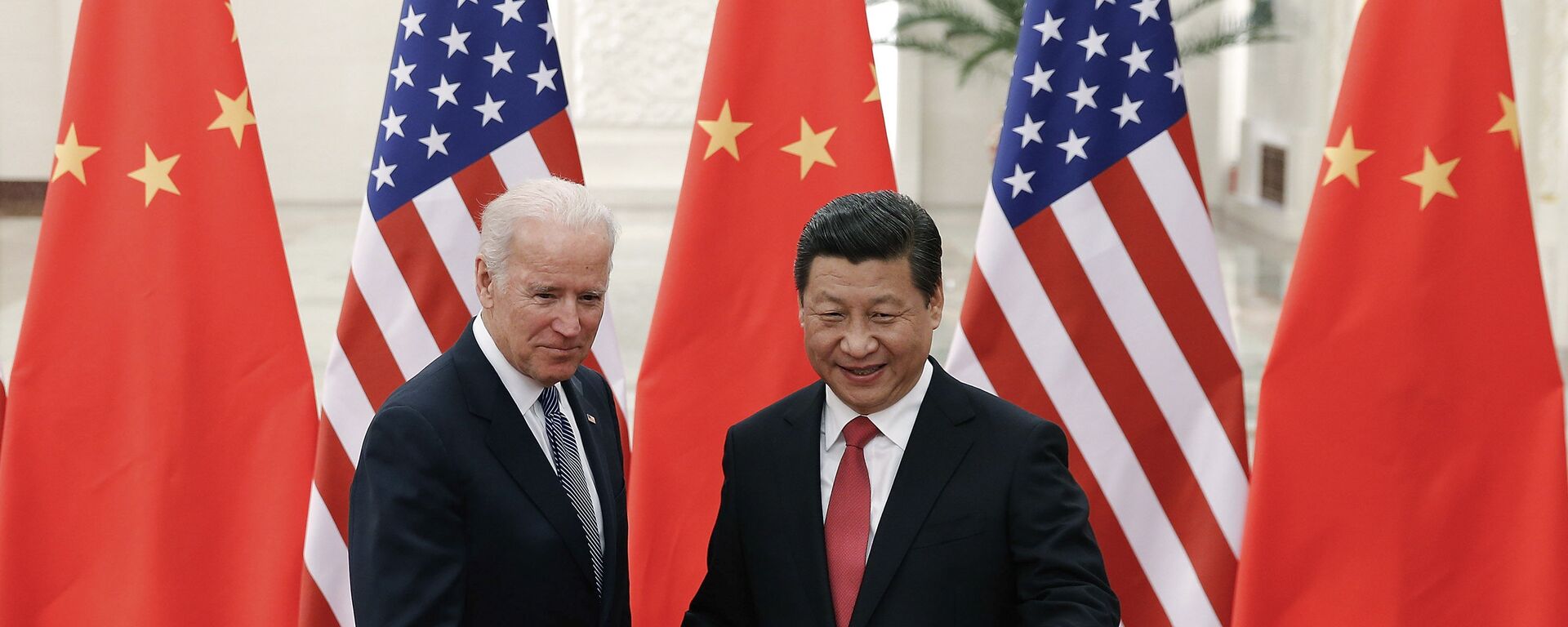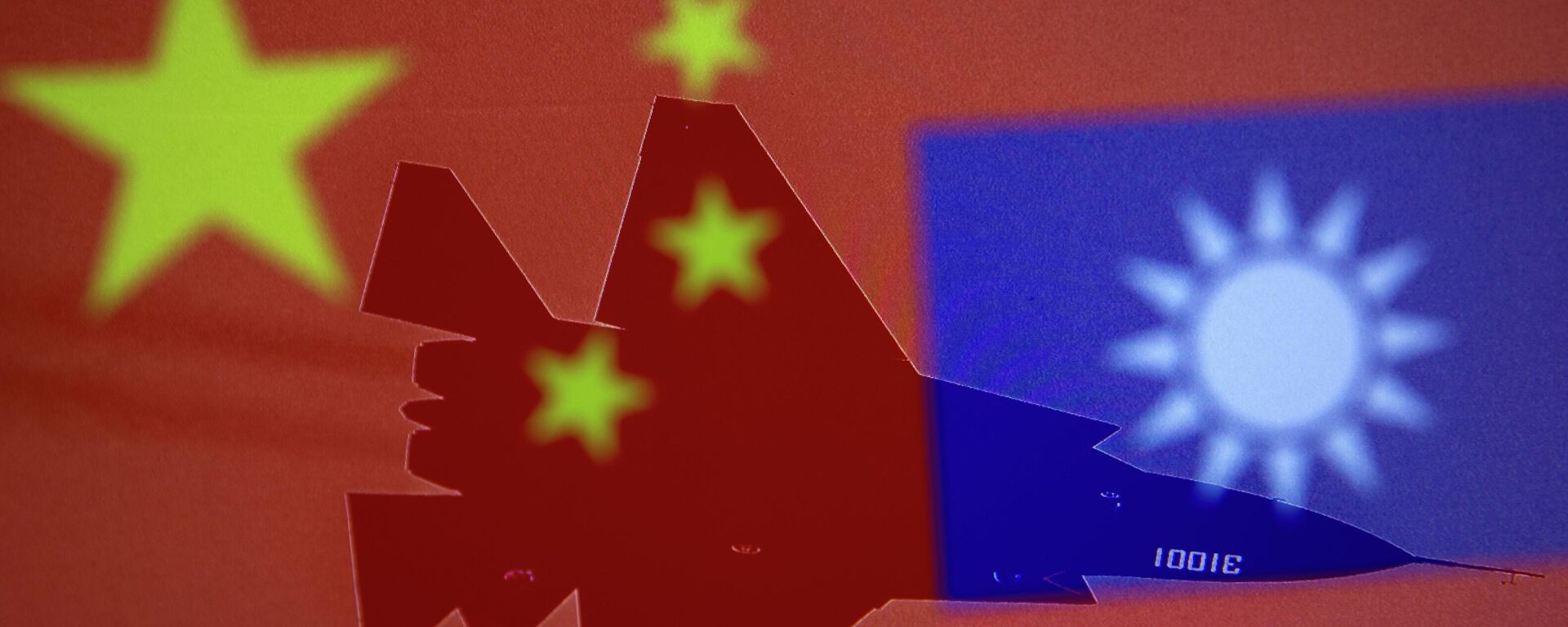Australia Vows to Support US in Taiwan in Event of Confrontation With China
18:45 GMT 14.11.2021 (Updated: 18:51 GMT 14.11.2021)

© REUTERS / Australian Defence Force
Subscribe
Last week, in the wake of media reports detailing the stationing of small numbers of US troops on Taiwan, in possible violation of agreements on diplomatic relations between Washington and Beijing, Taiwan’s defence ministry revealed that over 600 US troops had visited the island since 2019 alone.
Australia will loyally join the US in defending Taiwan in the event of a confrontation with China, Defence Minister Peter Dutton has indicated.
“It would be inconceivable that we wouldn’t support the US in an action if the US chose to take that action,” Dutton said in a carefully worded statement in an interview with The Australian newspaper.
“I can’t conceive of those circumstances,” he reiterated.
Accusing Chinese leaders of having been “very clear about their intent to go into Taiwan,” Dutton said that Canberra now needs “to make sure that there is a high level of preparedness, a greater sense of deterrence by our capability, and I that is how I think we put our country in a position of strength.”
Hu Xijin, editor-in-chief of China’s Global Times newspaper, blasted Dutton over the remarks, warning on Twitter that “if Australian troops come to fight in the Taiwan Straits, it is unimaginable that China won’t carry out a heavy attack on them and the Australian military facilities that support them.”
“So Australia better be prepared to sacrifice for Taiwan island and the US,” Hu stressed.
If Australian troops come to fight in the Taiwan Straits, it is unimaginable that China won’t carry out a heavy attack on them and the Australian military facilities that support them. So Australia better be prepared to sacrifice for Taiwan island and the US👍 https://t.co/98XUaRlvwL
— Hu Xijin 胡锡进 (@HuXijin_GT) November 13, 2021
A Little Help From My Friends
Dutton’s comments come after remarks by US Secretary of State Antony Blinken last Wednesday assuring the world that America was not alone in its efforts to “preserve peace and stability” in the Taiwan Strait. Blinken said there were “many countries” that would “take action” in the event of a Chinese invasion of the island, without elaborating on which countries he was referring to, or what kind of “action” he meant.
In mid-September, Australia, the US, and the UK signed a trilateral security pact known as AUKUS, with the agreement promising Canberra nuclear reactor technology for the construction of a series of attack subs, plus expanded cooperation in cyber, AI and quantum technology, and possible expanded basing rights for US warships at Australian ports. The secretive agreement robbed France of a contract worth over $65 billion to build conventional diesel-electric subs for the Australian Navy.
The Australian Navy has 43 warships in its arsenal, including eight frigates, three destroyers, and six ageing Collins-class submarines. The force also includes two Canberra-class helicopter dock ships and the HMAS Choules lander.
The Chinese People’s Liberation Army Navy’s fleet consists of over 350 ships, including 130 major surface combatants, 50 destroyers, 72 corvettes and 79 subs, including Jin-class ballistic missile subs. While it has been known for many decades strictly as a coastal defence force, the PLAN arsenal of warships has grown considerably over the past decade amid heightened tensions with the US, and contested claims to areas of the South and East China seas, with the range of its warships expanding significantly. In addition to missile subs, the PLAN now includes two aircraft carriers, plus two more under construction.
Taiwan Tensions
Beijing considers Taiwan an integral part of China destined for eventual peaceful reunification along the One Country, Two Systems model previously applied to Hong Kong. However, Chinese media have also warned that constant US "provocations," such as "freedom of navigation" missions in the Taiwan Strait, support for independence-minded politicians in Taipei, and pledges to defend Taiwan, may force the PRC’s hand.
On Saturday, Chinese Foreign Minister Wang Yi warned Washington against backing pro-Taiwan independence forces, saying doing so sends “wrong signals.”
Also on Saturday, the South China Morning Post reported that Beijing plans to update its blacklist of Taiwanese pro-independence figures and financiers, among them the island’s premier, president and foreign minister.
Chinese President Xi Jinping and US President Joe Biden are expected to hold a conference by video on Monday to discuss bilateral relations. Last Tuesday, Chinese Ambassador to the US Qin Gang read a letter from Xi addressed to the National Committee on US-China Relations in which the Chinese leader stressed that China-US relations were “at a critical historical juncture,” and emphasised that “both countries will gain from cooperation and lose from confrontation.”

11 November 2021, 00:01 GMT

